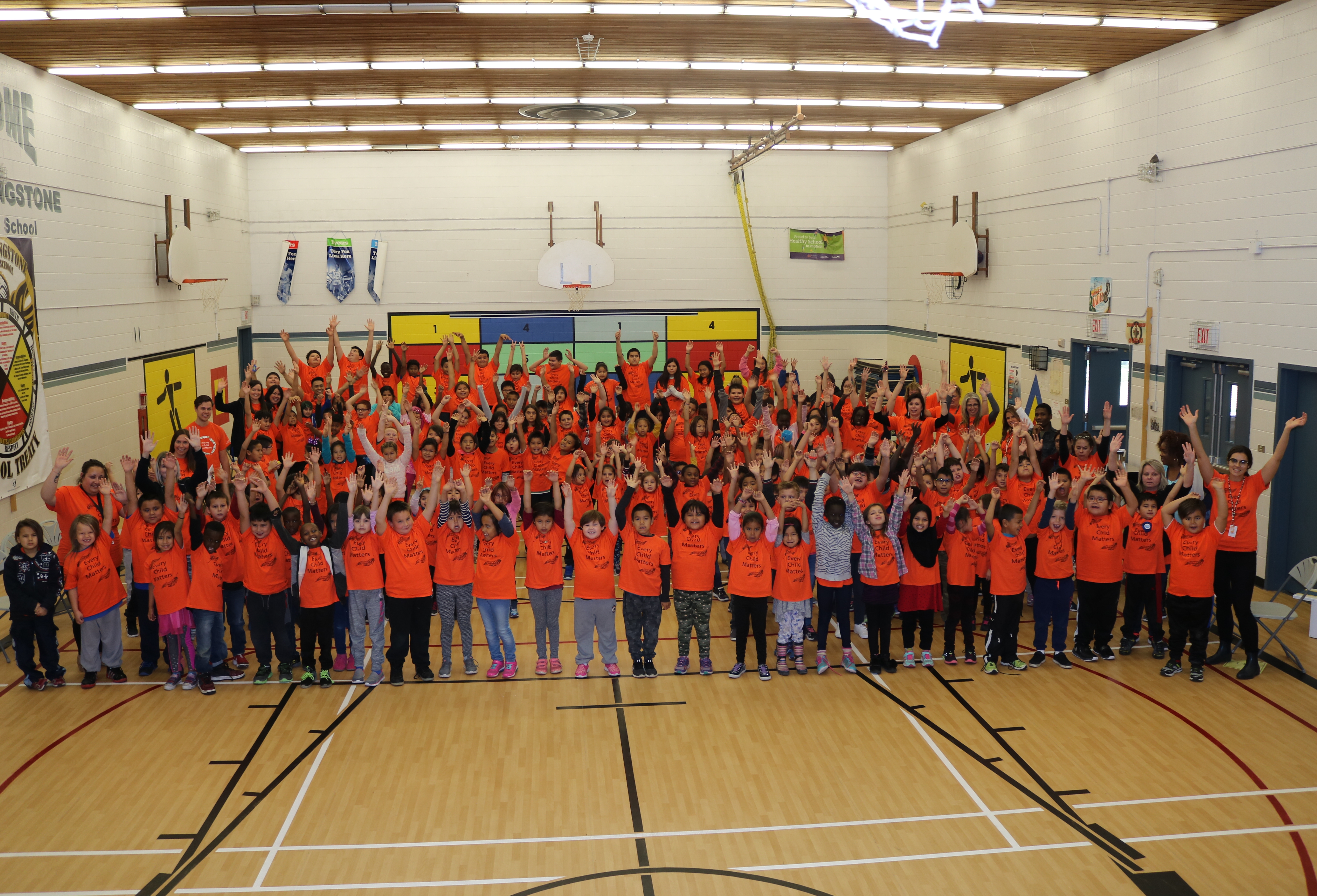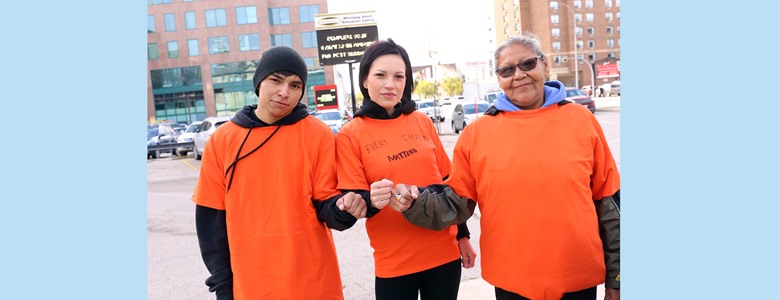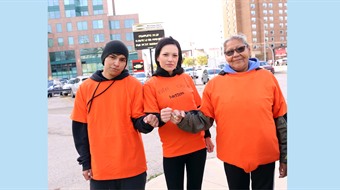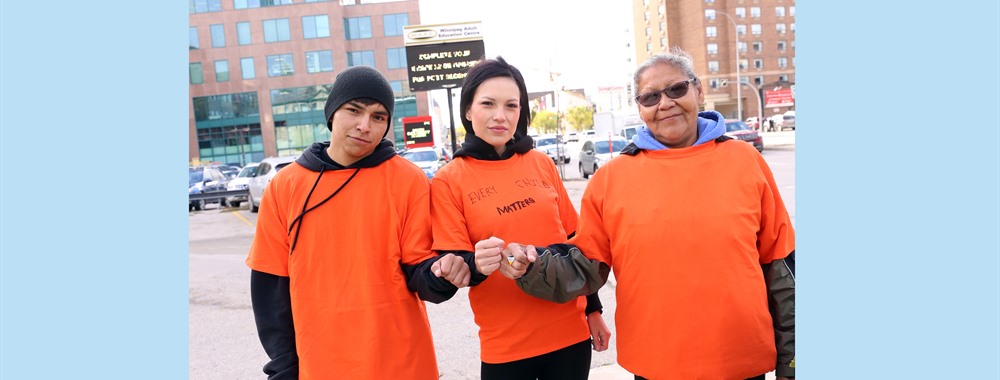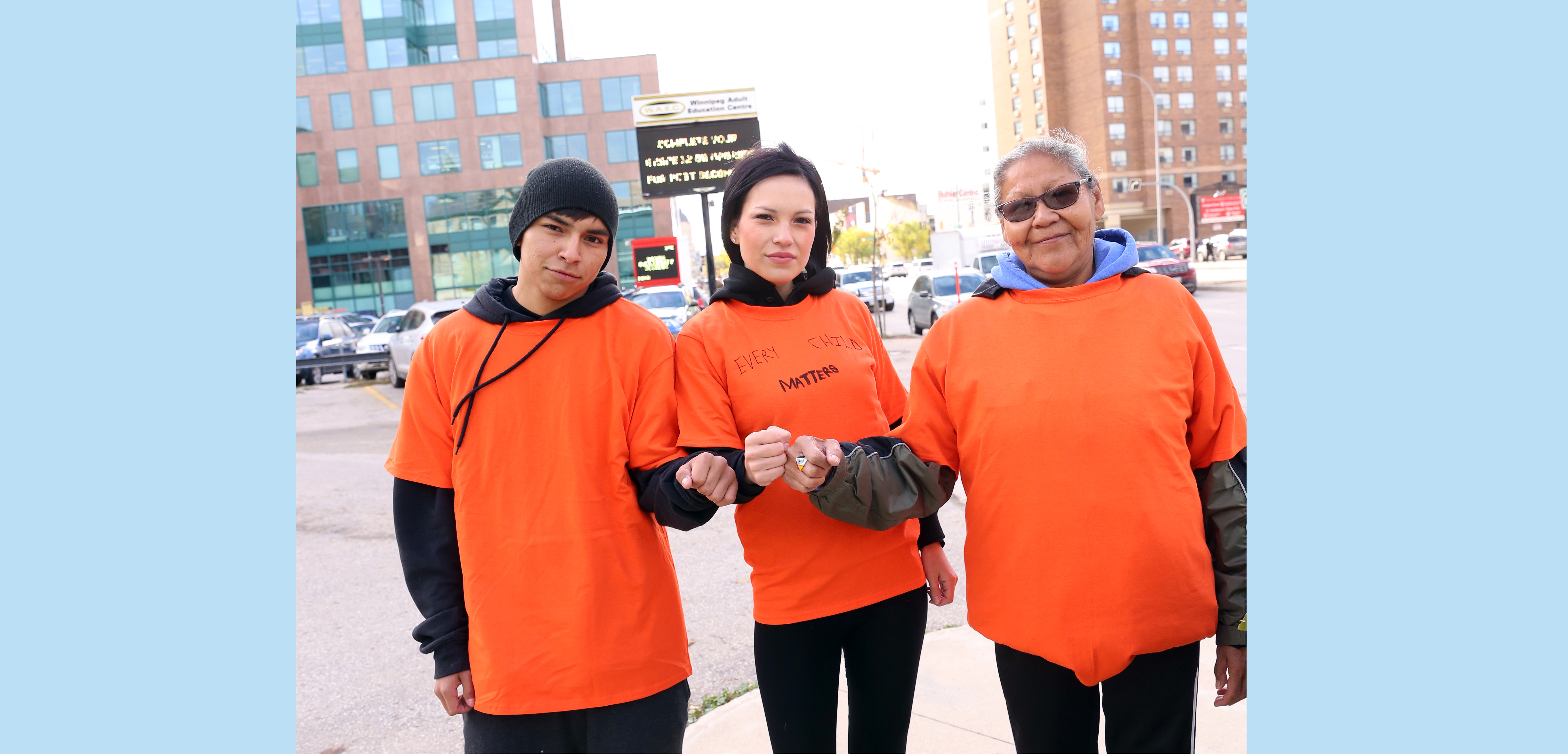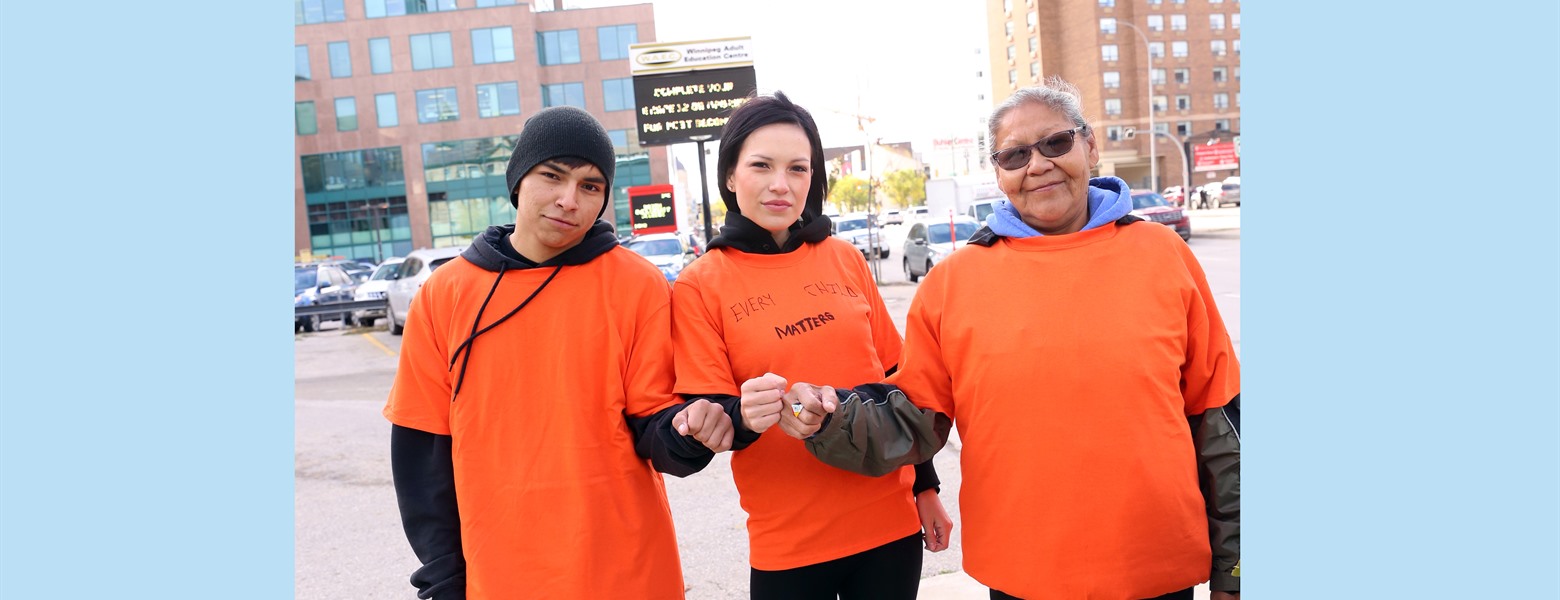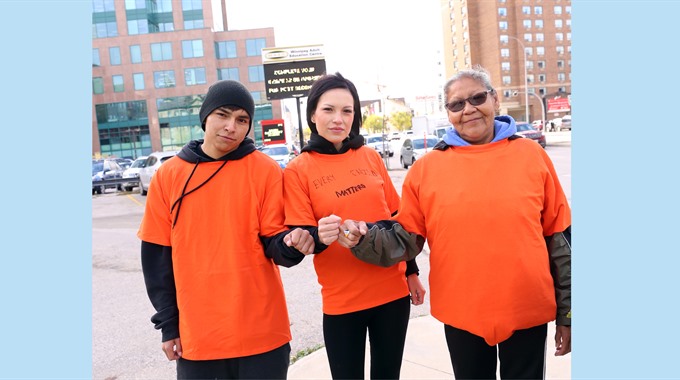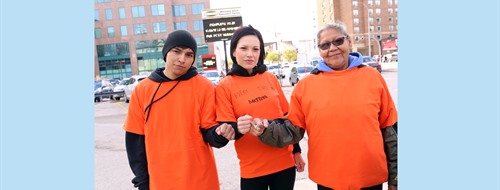Orange Shirt Day ties past, future together
February 8, 2021
Reflecting on a tragic past and hoping for a better future, students and staff across marked Orange Shirt Day on Sept. 28.
Photo courtesy of Allan MacGillivray, David Livingstone Community School
The day was inspired by the story of Phyllis (Jack) Webstad’s experiences while attending St. Joseph Mission Residential School, in B.C.
Phyllis lived with her grandmother, who gave her a new orange shirt to wear to the mission in 1973-74. When she arrived at the school, she was forced to strip and her clothes were taken away—including the orange shirt she cherished. The story has become symbolic of the loss of identity, culture and familial ties in the residential school system.
Orange Shirt Day is officially held on Sept. 30, but communities are encouraged to mark the day on a date that is suitable.
“This is a step forward in reconciliation and acknowledging what happened historically to children attending residential schools,” said Aaron Benarroch, Principal at the Winnipeg Adult Education Centre (WAEC). “It’s important to make a statement that all children matter. All children deserve an opportunity to have security, education and good health…this is why we do this.”
WAEC marked the day with a ceremony in the school’s circle garden—which was designed to reflect Indigenous traditions and values. Students from all of WAEC’s campuses, including Kaakiyow li moond likol, T.E.R.F. WAEC Off Campus, and Taking Charge, were invited to the gathering.
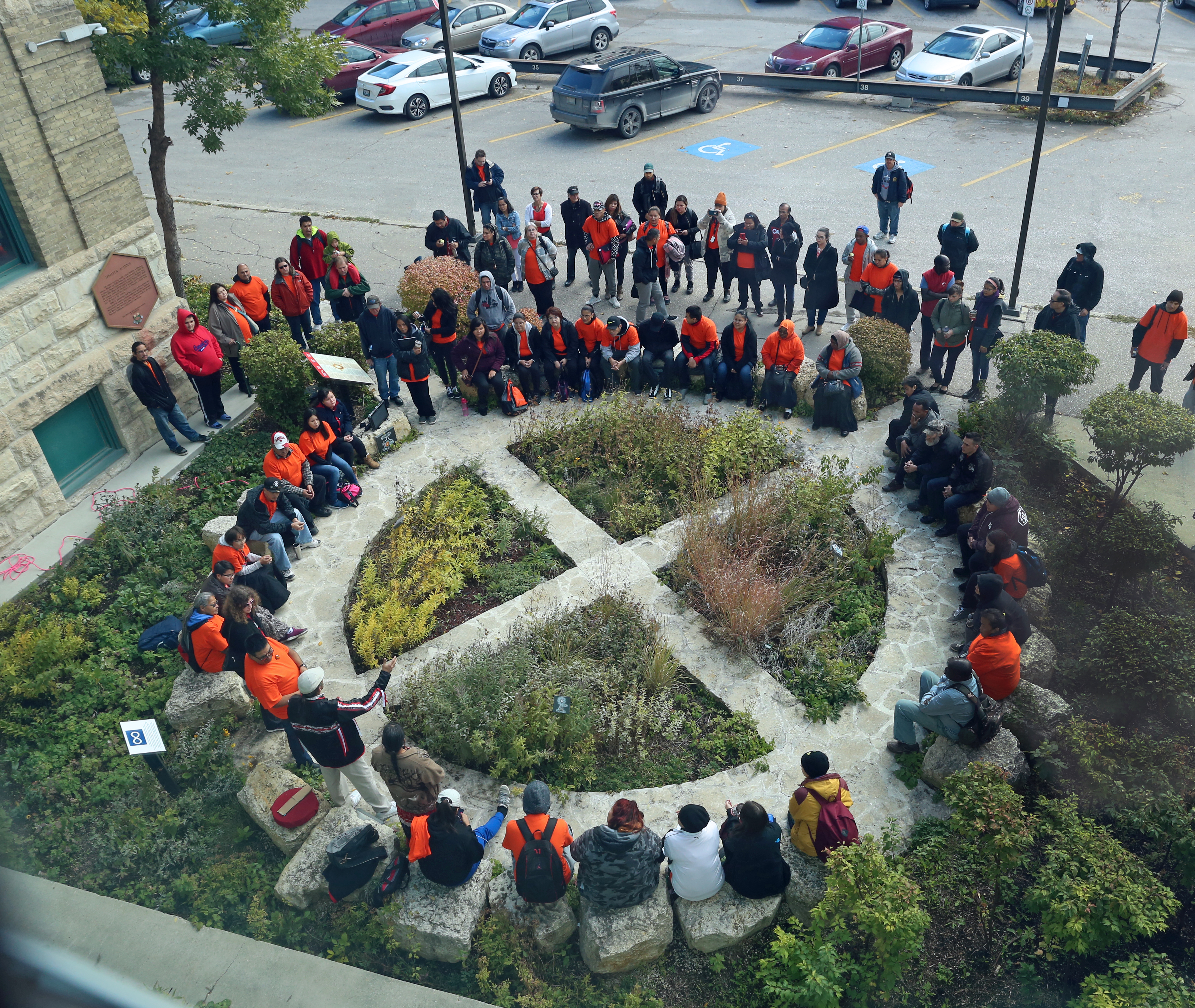
WAEC student Freda Campbell, who is at WAEC to update her education after many years, said the day was an important one.
“This day is for us,” she said. “My mother was in a residential school, and she told us of the horrors that went on in there. Orange Shirt Day creates awareness…because the younger children need to know what happened.”
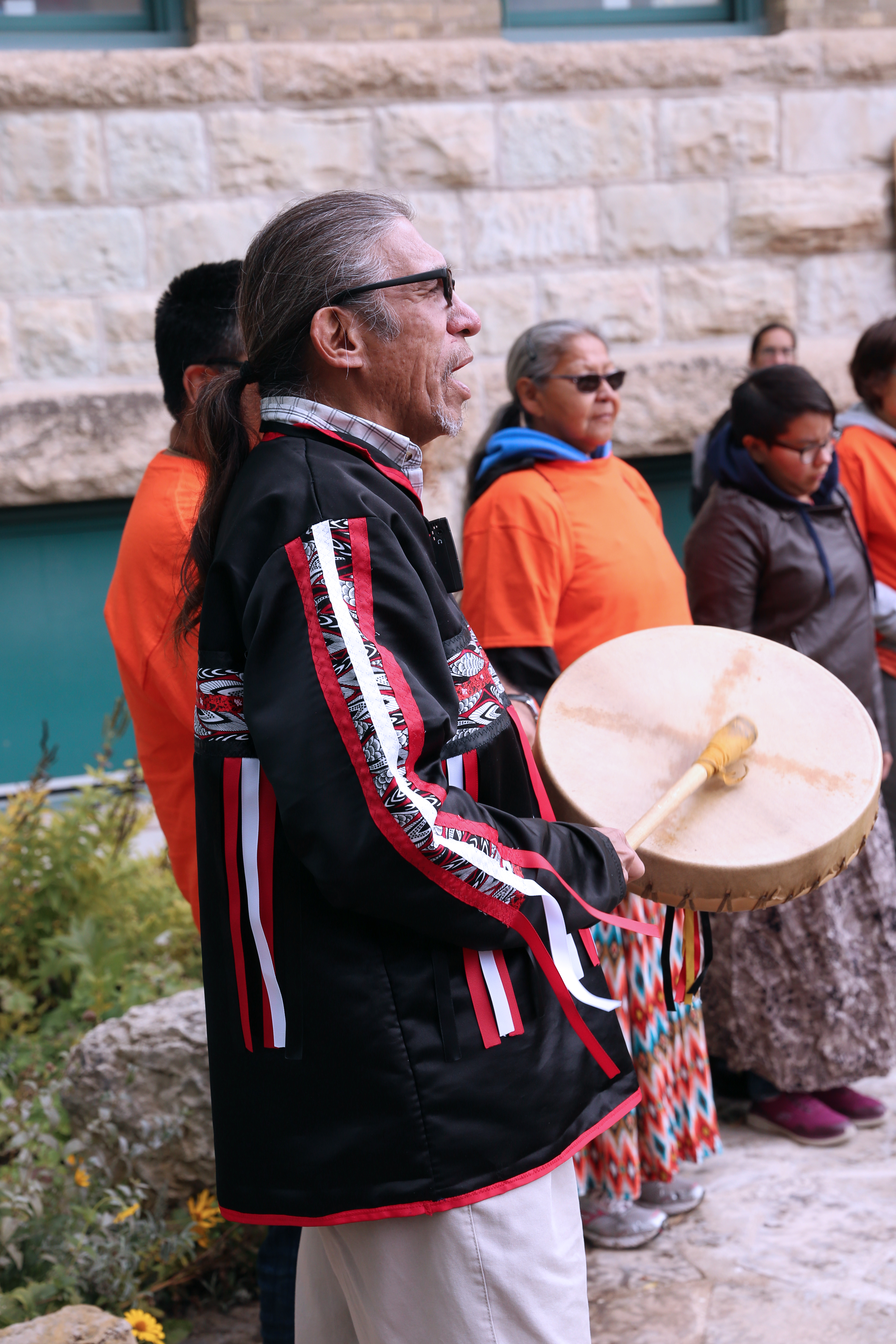
Elsewhere, at David Livingstone Community School, students marked the day with a special assembly.
In an ongoing school-wide focus on storytelling and self-identity, students have been learning more about their own family histories; they have found many ties to the residential school system.
“A lot of the students at this school have families or family members that were affected by residential schools,” said Delia Jacob, a Grade 5/6 teacher at the school. “This is something that wasn’t talked about for so long, so it’s important for Canadians to remember and pay their respects.”
While it can be a difficult process to remember a darker time in Canadian history, learning about that past can help build identity and meaning for students today.
“Students are learning to tell stories about themselves and their families,” said Principal Tim Cox. “It’s about giving students that voice to advocate for themselves, not just for today but in the future.”
- Video created by John Dell of Signal Point Media (www.johndell.ca)

